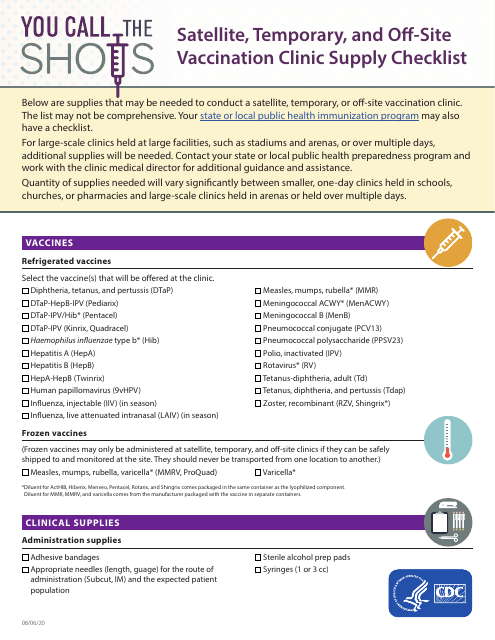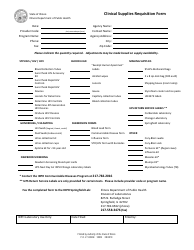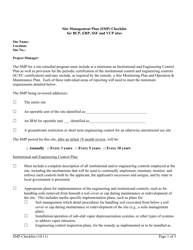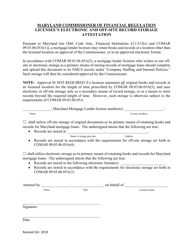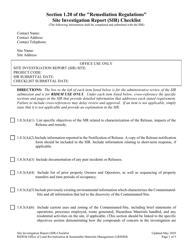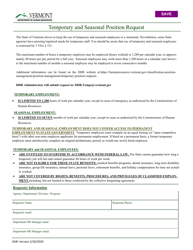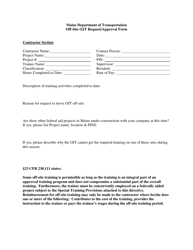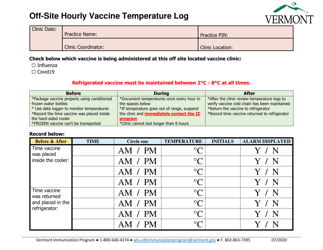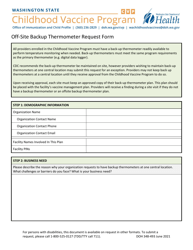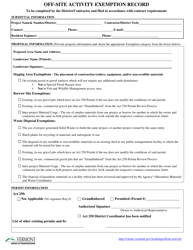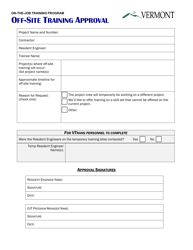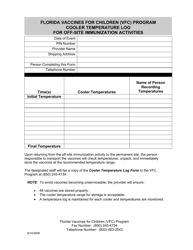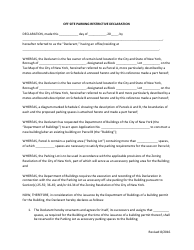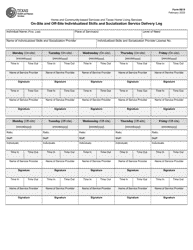Satellite, Temporary, and off-Site Vaccination Clinic Supply Checklist
A Satellite, Temporary, and Off-Site Vaccination Clinic Supply Checklist is a guideline used to ensure the effective administration of vaccines outside of the usual health care settings. This may apply during mass vaccination campaigns or in remote or under-served areas. The checklist includes necessary supplies such as the vaccines themselves, syringes, bandages, alcohol swabs, and required paperwork. It may also include items for emergency scenarios such as epinephrine for severe allergic reactions. The purpose is to standardize the procedure of setting up temporary vaccination clinics and to ensure that no crucial element is left out, guaranteeing the safety, effectiveness, and efficiency of vaccination efforts.
The Satellite, Temporary, and off-Site Vaccination Clinic Supply Checklist is typically filed by the individual who is responsible for managing the clinic or the healthcare organization overseeing the vaccination process. These persons may include a clinic manager, a healthcare provider, a nurse, or a pharmacist participating in the vaccination program. This checklist ensures all necessary supplies and equipment are available for the vaccination clinic to operate smoothly. Entities operating these programs vary by country; in the USA, it could be a state health department, while in Canada, it might be a provincial health authority. In India, it could fall under the responsibility of the Ministry of Health and Family Welfare, and in Australia, it might be overseen by the Department of Health.
FAQ
Q: What is a Satellite, Temporary, and Off-Site Vaccination Clinic?
A: These are locations set up to administer vaccines away from the regular healthcare facilities. They could be set up in places such as schools, churches, or community centers.
Q: What supplies are needed for a Satellite, Temporary, and Off-Site Vaccination Clinic?
A: The supply checklist includes items like vaccines, syringes, needles, personal protective equipment (PPE), emergency medication, hand sanitizer, cleaning supplies, storage containers, waste disposal units, and paperwork for record keeping. The exact list may vary based on specific needs and guidelines.
Q: How are vaccines stored at an Off-Site Vaccination Clinic?
A: Vaccines at an off-site clinic should be stored in a portable insulated cooler with a digital data logger that can monitor temperature. The cooler should contain frozen ice packs to keep the vaccines at the recommended temperature.
Q: Why are Satellite, Temporary, and Off-Site Vaccination Clinics important?
A: These clinics are set up to reach people in areas where there are few or no medical facilities, or to distribute vaccinations more quickly during a pandemic. They help in increasing the accessibility and availability of vaccines to a larger population.
Q: Who operates Satellite, Temporary, and Off-Site Vaccination Clinics?
A: These clinics are usually run by health departments, healthcare providers, pharmacies, and sometimes volunteers under the supervision of healthcare professionals. In a mass vaccination situation, the military or other emergency response organizations may also be involved.
Q: What is the process at a Satellite, Temporary, and Off-Site Vaccination Clinic?
A: Generally, people register or walk in, fill out paperwork, receive their vaccination, and then wait for a short period under supervision to ensure they don't have an adverse reaction. Detailed process may vary based on the protocol set by the health authority.
Q: How are vaccine wastages managed at Satellite, Temporary, and Off-Site Vaccination Clinics?
A: Vaccine wastages are minimised by careful planning and management. Unused vaccines are typically returned to the central inventory if they have been stored correctly. Any spoiled vaccines are disposed of as per the recommended guidelines.
